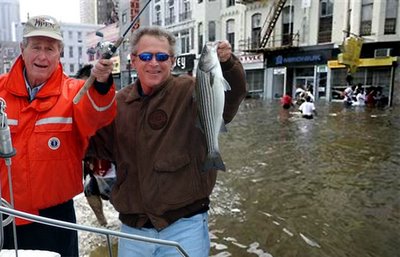The Utility of Force by Gen. Sir Rupert Smith
Reviewed by Robert Cooper, The Sunday Times Sept. 18, 2005
The Utility of Force: The Art of War in the Modern World by Gen. Sir Rupert Smith [Allen Lane £20 pp. 444]
General Sir Rupert Smith is one of Britain’s most distinguished soldiers. He commanded the British Armoured Division in the first Gulf war in 1991 and the United Nations Protection Force (Unprofor) in Bosnia in 1995; he was the senior European officer in Nato during the 1999 Kosovo campaign. When there was serious business to be done, he was the man to whom the government turned.
The Utility of Force combines profound thought and practical experience. In particular the experience of Unprofor seems to be burnt into Smith’s thinking. The chapter on Bosnia is one of the best short accounts anywhere of the mess we got ourselves into: “The starting point to understanding all operations in the Balkans in the 1990s... is that they were without strategies.” This book is about achieving workable strategy in a complex world. It deserves to be read at the highest levels.
The unique authority that Smith brings to his subject is not wasted on reminiscences or platitudes. The central thesis of the book is radical. “Industrial war”, the all-out sort of struggle that disfigured the 20th century, is dead. Instead, we fight “among the people”. The Weinberger/Powell doctrine formulated as America recovered from Vietnam is a doctrine for industrial war: fight only for vital interests; fight only to win; fight only as a last resort; fight with overwhelming force; and finish it quickly. Such a doctrine was right for the second world war. (“What is our aim?” asked Churchill. “Victory. Victory at all costs.”) But it hardly fits the kind of wars we fight today. In Northern Ireland, where he was General Officer Commanding, it was important to use minimum force. The fault in Bosnia (one of the many faults) was precisely that we used force as a last resort. Bad doctrine costs lives. We did better in Macedonia in 2000, where we ignored the Weinberger doctrine and intervened early — without many forces but, crucially, with a political strategy.
If war is a matter of national survival, then the only acceptable outcome is unconditional surrender. In that case, the strategic goals are purely military, and overwhelming force is not such a bad idea. But in Smith’s view such wars came to an end with nuclear weapons: the absolute war would lead to absolute destruction. In the cold war, both sides prepared vast arsenals for a war they never fought and never intended to fight. (“First we lose the conventional war. Then we lose the tactical nuclear exchange. Then we blow up the world,” was Henry Kissinger’s summary.) The real cold war was a political struggle with occasional military episodes; Lech Walesa’s Solidarity, and western unity and prosperity, were more important than any tank or missile. As a war, it was in some respects an imaginary event.
All this time we were fighting real wars — Britain in Malaysia, Kenya, Cyprus and Northern Ireland; France in Vietnam and Algeria; America in Vietnam. These were Wars among the People. They were political events with military characteristics. They were mostly without battlefields and finished in political settlements rather than military victories. Fighting them as though they were industrial wars did not work. (In Vietnam the Americans even appointed Robert McNamara, one of its great industrialists, to run the war.)
Clausewitz describes war as both a trial of strength and a clash of wills. Industrial war is about the former. War among the People is about winning the battle of wills. The objective is not to crush but to change minds. The confrontation in Malaysia was won by political strategy (the promise of independence) as much as by military tactics. And the battle of Algiers was lost because there was no political strategy. The objective, as Smith puts it at one point, is to show the people how bad the insurgents are and how good your forces are. Not far from Marshal Foch’s comment that war is the domain of moral force.
It may be that the world is not quite as new as Smith suggests. The first Gulf war resembles the limited wars of the 18th century; so does our unwillingness to take large casualties. Then, as now, soldiers were professional, scarce and expensive. And Napoleon’s objective also was to change regimes and, in the process, change the map of Europe. Not so different from American ambitions in the Middle East. But Smith’s main point is right: the 21st century is quite different from the 20th, though our armies and our mindsets still seem to be formed by the industrial wars of what is now long ago.
It is not just nuclear weapons that have changed the world but also democracy and self-determination. Napoleon changed regimes by overthrowing kings and replacing them with relatives. Today this does not work. If you want democracy then the people are in charge. War among the People is one result of a democratic age. Smith makes much use of the Clausewitzian trinity: army, state and people. The balance between the three has changed. Once armies dominated — as they still do in the country of warlords; later, states were able to command the complete obedience of their people. Now it is the people who are in charge and the strategic objective is their hearts and minds. Wars are now fought for the people, among the people, and it is the people who are the prize and the strategic goal. And whereas aggressors once aimed merely to eliminate a state, now they may want to eliminate a people.
As Smith says, our forces remain configured for wars we will not fight; but he gives only a few hints of what we should do instead. Condoleezza Rice famously stated that it was not the job of the 101st Airborne to take children to their kindergarten; true — but not because this is the wrong task, rather because we have the wrong forces for it. Probably we need less armour and artillery and more infantry, more intelligence, more deployable police, even more linguists and anthropologists. If you fight among the people you had better understand them. And more media specialists: war has become a spectator sport. As Smith points out, the expression “theatre of war” now has an ironic tinge.
Using force effectively is not just a matter of having the right forces. You must also have the right direction and must tune the military campaign to the political goals (has this always been done well in Iraq?). Defence, foreign and aid policy need to be brought together. Clausewitz recommended that the head of the armed forces should sit in the cabinet, not so that the politicians should receive military advice, but so that the army should understand exactly what political goals it was fighting for and could conduct the campaign accordingly. We need to find the modern equivalent.
Available at the Books First price of £18 on 0870 165 8585
Sunday, September 18, 2005
Tuesday, September 13, 2005
Ads seen in newspapers
2 female Boston Terrier puppies, 7 wks old, Perfect markings, 555-1234. Leave mess.
Lost: small apricot poodle. Reward. Neutered. Like one of the family.
A superb and inexpensive restaurant. Fine food expertly served by waitresses in appetizing forms.
Dinner Special — Turkey $2.35; Chicken or Beef $2.25; Children $2.00.
For sale: an antique desk suitable for lady with thick legs and large drawers.
Four-poster bed, 101 years old. Perfect for antique lover.
Now is your chance to have your ears pierced and get an extra pair to take home, too.
Wanted: 50 girls for stripping machine operators in factory.
Wanted: Unmarried girls to pick fresh fruit and produce at night.
We do not tear your clothing with machinery. We do it carefully by hand.
For Sale. Three canaries of undermined sex.
For Sale — Eight puppies from a German Shepperd and an Alaskan Hussy.
Great Dames for sale.
Have several very old dresses from grandmother in beautiful condition.
Tired of cleaning yourself? Let me do it.
Dog for sale: eats anything and is fond of children.
Vacation Special: have your home exterminated.
If you think you’ve seen everything in Paris, visit the Pere Lachasis Cemetery. It boasts such immortals as Moliere, Jean de la Fontain, and Chopin.
Mt. Kilimanjaro, the breathtaking backdrop for the Serena Lodge. Swim in the lovely pool while you drink it all in.
The hotel has bowling alleys, tennis courts, comfortable beds, and other athletic facilities.
Get rid of aunts: Zap does the job in 24 hours.
Toaster: A gift that every member of the family appreciates. Automatically burns toast.
Sheer stockings. Designed for fancy dress, but so serviceable that lots of women wear nothing else.
Stock up and save. Limit: one.
We build bodies that last a lifetime.
For Rent: 6-room hated apartment.
Man, honest. Will take anything.
Wanted: chambermaid in rectory. Love in, $200 a month. References required.
Man wanted to work in dynamite factory. Must be willing to travel.
UsedCars: Why go elsewhere to be cheated? Come here first!
Christmans tag-sale. Handmade gifts for the hard-to-find person.
Modular Sofas. Only $299. For rest or fore play.
Wanted: Hair-cutter. Excellent growth potential.
Wanted. Man to take care of cow that does not smoke or drink.
3-year-old teacher needed for pre-school. Experience preferred.
Monday, September 12, 2005
 Paul Krugman wrote in the New York Times on Sept. 2: "Thousands of Americans are dead or dying, not because they refused to evacuate, but because they were too poor or too sick to get out without help — and help wasn’t provided." He said, "Yesterday Mr. Bush made an utterly fantastic claim: that nobody expected the breach of the levees. In fact, there had been repeated warnings about exactly that risk."
Paul Krugman wrote in the New York Times on Sept. 2: "Thousands of Americans are dead or dying, not because they refused to evacuate, but because they were too poor or too sick to get out without help — and help wasn’t provided." He said, "Yesterday Mr. Bush made an utterly fantastic claim: that nobody expected the breach of the levees. In fact, there had been repeated warnings about exactly that risk."In the same article, the former FEMA chief James Lee Witt is cited as saying at a Congressional hearing: "I am extremely concerned that the ability of our nation to prepare for and respond to disasters has been sharply eroded. I hear from emergency managers, local and state leaders, and first responders nearly every day that the FEMA they knew and worked well with has now disappeared."
Friday, September 02, 2005

In the aftermath of Hurricane Katrina, several foreign leaders expressed frustration that they couldn’t get a go-ahead from the Bush Administration to administer help.
President Bush said on the ABC News program Good Morning America that the United States could fend for itself; "I do expect a lot of sympathy, and perhaps some will send cash dollars," he said. "But this country is going to rise up and take care of it."
The immediate response from many nations was to ask to be allowed to send in self-sustaining SAR teams to assist in evacuating those stranded.
France had a range of aircraft and two naval ships standing ready in the Caribbean. Russia offered four jets with rescuers, equipment, food and medicine, but their help was declined.
Germany had offered airlifting, vaccination, water purification, medical supplies including German air force hospital planes, emergency electrical power and pumping services, their offer was noted and on Sept. 4 they received a formal request.
Similarly, Sweden waited until Sept. 12 for a formal request to send a military cargo plane with three complete GSM systems, water sanitation equipment, and experts.
Subscribe to:
Posts (Atom)